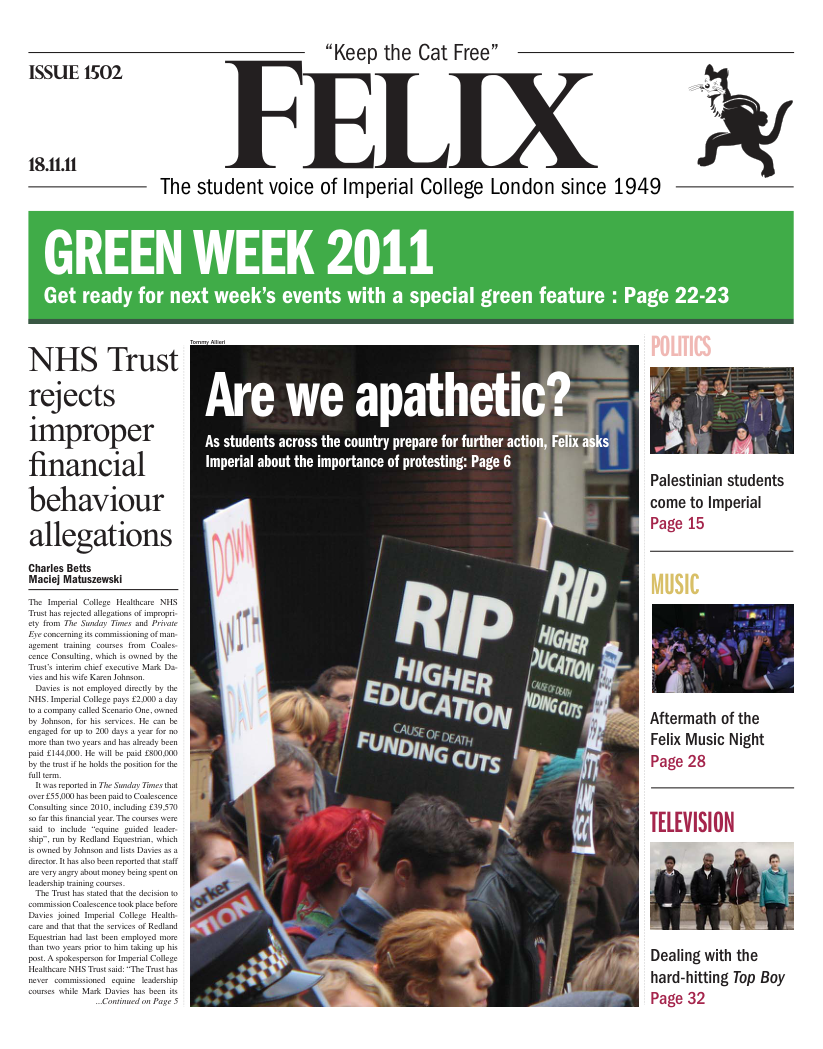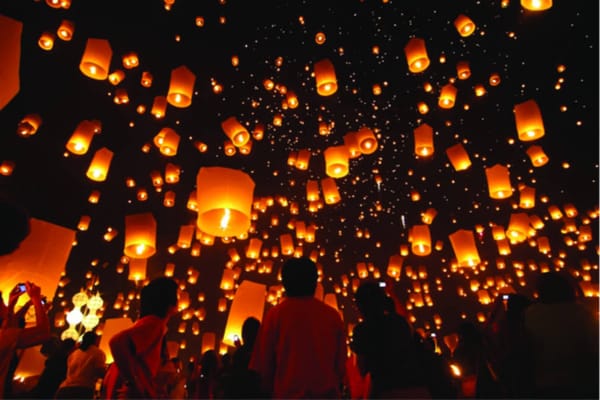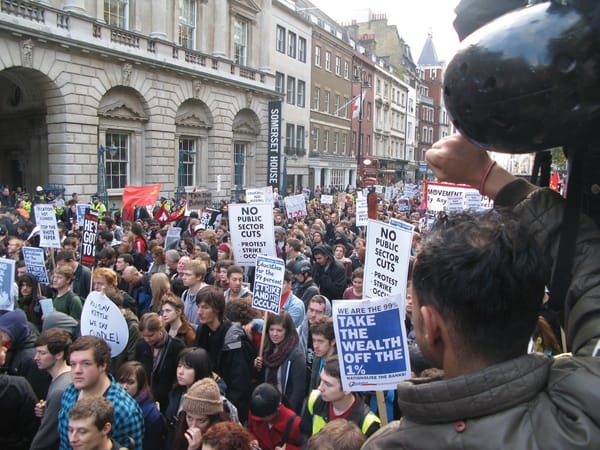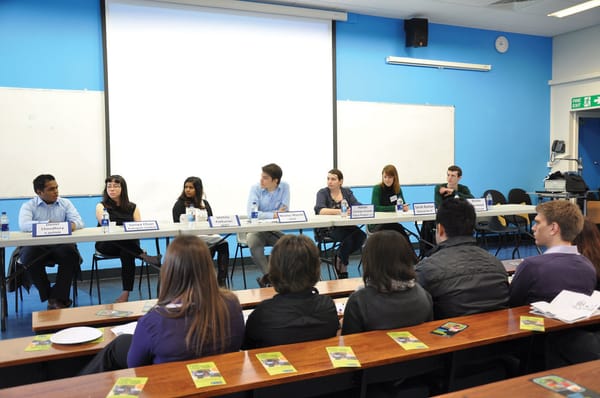Just how conservative are we?
Rory Fenton on Imperial’s political viewpoint
The week before I started my first year here I went to the Fresher’s Fair at Queen’s University Belfast, my local. Going to Imperial’s the week after was a more or less similar affair – the same hobbies and sports, the same international societies and charities. But one thing stood out as missing – where was the political Left? Unlike Queen’s with its range of left wing groups all vying for attention, singing revolutionary songs and pronouncing on student fees and corporate greed, this fledgling physicist saw just two people quietly manning a Socialist Workers stall, nestled uncomfortable between stalls from the various investment banks and oil companies we all know and love on campus. The Left, it seemed, had left. The question is – has it ever been here? Is Imperial naturally conservative?
One thing stood out as missing – where was the political Left?
We certainly aren’t socially conservative. Imperial was ranked by LGBT rights group Stonewall as the most gay-friendly university in the UK and if anything is stopping students from availing of the freely distributed condoms around campus it’s the infamous “ratio”, not old- fashioned morals.
But while we may be generally apathetic, when we do get political are we, as a student body, quite right-wing? This seemed to be the case last year when Imperial College Union spoke out on the Brown Review of tuition fees. This made them no different to any other students’ union except for one thing- they spoke out in favour of the fees. So did Felix. Brown was in favour of uncapped fees, a move that even the Conservative-led coalition government opposed and yet our union, a lone island in a sea of student union outrage, backed them.
But how representative of its students was ICU’s decision? From the Union’s own survey at the time of the Brown Report, while some 90% of students (including overseas students) supported some kind of fees, just 13% agreed with a fully uncapped system, as supported by their Union. So it seems that the full extent of the Union’s stance was unrepresentative of its students. But it remains the case that 90% of students agree with paying something for our time here, putting them significantly at odds with the majority of students nationwide.
Of course the elephant in the room for such an issue is class – some would argue that Imperial students are simply posher than most and naturally lean towards conservatism to protect their vested interests. It is certainly true that Imperial students are more privileged than most – some 37% came here from private schools and just 2.9% qualified for free school meals, compared to 7% and 5% respectively in the country. But Oxford and Cambridge with their famously privileged intake still have significant left wing groups and student protest movements. And while, yes, the current Conservative leader went to Oxford, so did the Labour leader. We’re still no further.
90% of students agree with paying something for our time here, putting them significantly at odds with the majority of students nationwide.
So how does this perceived right-wards shift fit with the idea that Imperial students are apolitical? The chair of Imperial’s Conservative Society points out that “conservatism as a movement and being a member of the political party are two vastly different things”. Viewed in this way, things start to make more sense. Conservatives at Imperial aren’t so much dyed-in-the-wool Tories as libertarians, “conservatives with a small ‘c’” in the words of the Conservative Society chair. More philosophical than partisan. In fact it may well be that the relatively calm political atmosphere here enables people to have opinions that in another university would leave them ostracized.
Some would argue that Imperial students are simply posher than most and naturally lean towards conservatism to protect their vested interests.
It would seem that IC student opinion tends to be shifted to the right of most other universities but there may be many reasons behind this. It could just be that more than anything else, the calmer, more tolerant political atmosphere simply allows for a wider exploration of different ideas. A strange irony for such an apolitical place.










